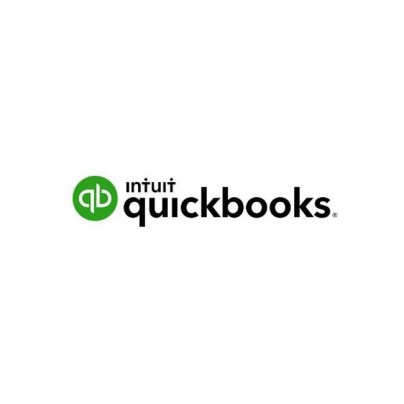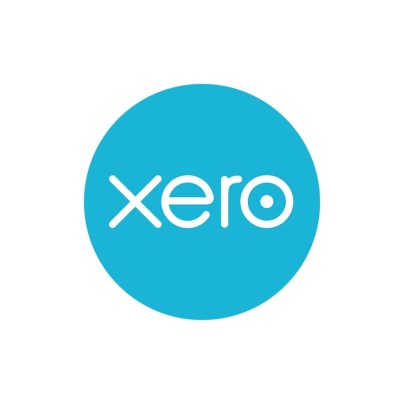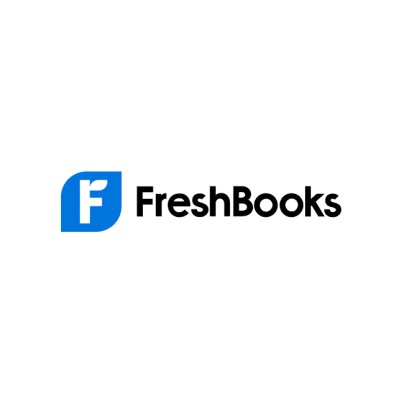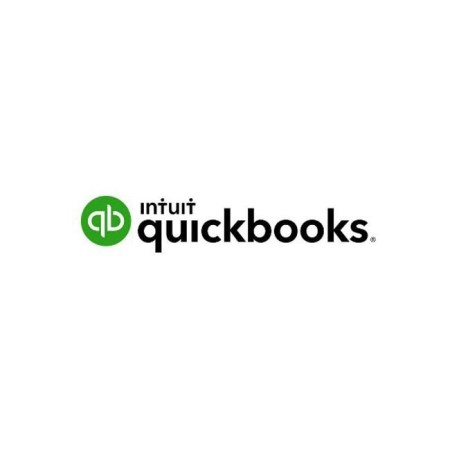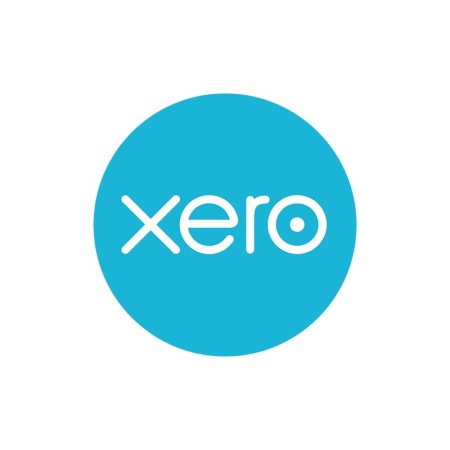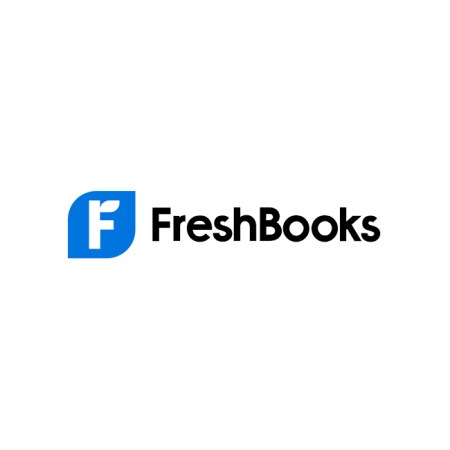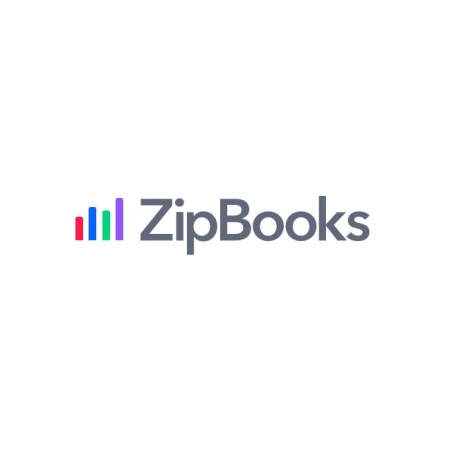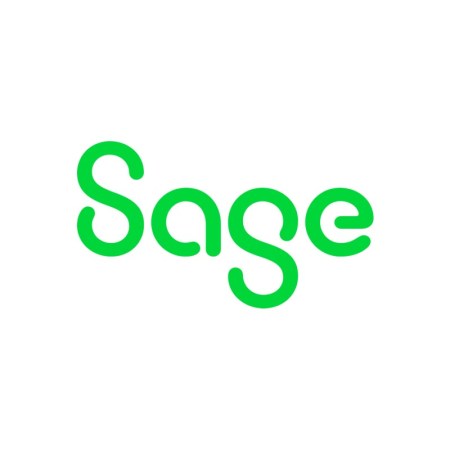
We may earn revenue from the products available on this page and participate in affiliate programs. Learn More ›
While cleaning-business owners might have all the cleaning under control, delivering high-quality services to satisfied customers, the accounting aspect of their operations might feel a bit muddy. Even those who excel at the customer-facing side of running a cleaning business—balancing clients and meeting their expectations—may struggle to ensure that all of their invoices, accounts, and bills are in order. For that reason, it can be worthwhile to invest in accounting software to streamline and even automate various financial processes.
This guide will dive into several software programs that might fit the bill. We’ll go over what to look for when choosing accounting software as well as highlight some of the best accounting software for cleaning-business owners to consider. The right fit will depend on a business’s particular needs, so it’s always a good idea to weigh each option carefully.
- BEST OVERALL: QuickBooks
- RUNNER-UP: Xero
- BEST DISCOUNTS: FreshBooks
- BEST FOR LOW RATES: ZipBooks
- ALSO CONSIDER: Sage 50

What to Consider When Choosing the Best Accounting Software for a Cleaning Business
Although it might seem as if choosing a software program would be a simple process, there are some important factors for business owners to consider before locking themselves into a contract. The last thing business owners want is to convert all their processes to a program that doesn’t fit their needs and potentially one that they don’t even like. The following factors are the most important considerations to keep in mind when shopping for a cleaning-business accounting software program, including cost, subscription options, accounting features, and user resources.
Pricing and Trial Period
One of the most important aspects of choosing the best accounting software is the price tag. After all, there are many other expenditures associated with running a business, such as insurance, equipment, supplies, and payroll, so it’s important that owners can afford the ongoing cost of subscription-based software. New business owners may be especially sensitive about cost, since their operating budget could be already stretched thin with cleaning-business insurance costs and routine expenses.
Many software programs for cleaning businesses use pricing tiers to build out subscriptions to suit different owners depending on the scale of their operations. Software companies may offer low-cost options with basic accounting capabilities that are suited for small businesses with just a handful of clients. However, larger businesses with multiple employees and hundreds of clients will likely require additional features to support their operations—inventory management or expense reporting, for example—and those capabilities will come at an additional cost.
Also, many top programs offer free trials that allow customers to give the software a test run and see if it’s a suitable option for their cleaning business. Trial periods often run for around 30 days, but this can vary from one software platform to another. During this time, the business owner can learn how to use the different features the software program offers, which is a great way to decide if the software is a good fit without a commitment.
Plans and Subscriptions
As noted, accounting software for small-business owners will typically offer multiple subscription options at different price points. Common features range from relatively simple accounting tasks to more extensive capabilities that touch nearly every aspect of cleaning-business operations. Basic software subscriptions will be less expensive, but they may limit the use of available features and allow the user to only send out a set number of invoices each month. Even with these limitations, entry-level subscriptions may be ideal for those who are just starting a cleaning business. Top-level subscriptions may provide access to unlimited invoices, reports, project management tools, inventory, payment processing, and even bank accounts, which are features that may be better suited for a more established cleaning business.
Business owners working with tighter budgets and simpler accounting requirements may choose to start with a lower-tier subscription. Simple accounting software for small-business owners can offer much-needed capabilities such as generating invoices and bookkeeping. As their business grows and they find the need for more advanced accounting capabilities, though, cleaning-business owners may be better served by a more expensive subscription offering more extensive features.
Accounting and Bookkeeping Features
In many cases, business accounting software can offer more advanced capabilities than simple invoice processing. These platforms often have additional accounting and bookkeeping features to help business owners make the most of their cash and resources. Examples of accounting and bookkeeping features that software may include are invoicing platforms, payroll management, inventory tracking, expense management, cash-flow reports, and bank account reconciliations. Some platforms may also include account management software to help cleaning businesses stay on top of their customer relationships and keep clients happy. These features allow business owners to manage their accounting requirements while also tracking various aspects of their day-to-day operations and using reporting data to make the best decisions with the most up-to-the-minute information possible.
Integration With Other Software
Many business owners choose business accounting software that integrates with other software programs they rely on daily. For example, an owner may choose an accounting platform that works well with their tax software, payroll platforms, reporting software, and more. To make this process even easier, some software programs are part of a larger software suite, providing endless options for integrating with other applications. This level of integration allows users to easily transfer data or even track information in real time between software programs.
Integration becomes even more important when it comes to receiving payments. Many small businesses use easily accessible electronic pay platforms like Square and Stripe, as well as popular home-service apps such as Jobber. Finding software that works seamlessly with financial reports generated within these electronic pay programs could be the key to automating and simplifying accounting.
- Read the BobVila.com Jobber review
User Resources
Getting the most out of any software platform can require a little know-how and familiarity with the ins and outs of a particular application, and not all business owners will feel comfortable navigating accounting software on their own. In those circumstances, they may need a little help from customer support or through tools and resources. For example, users may choose a software company that provides tutorials in the form of videos, blog posts, webinars, and more. These resources can be most helpful when business owners are stuck on a certain issue.
However, sometimes software users need answers right away and don’t have time to read through blog posts or watch video tutorials. Others may prefer to speak to a representative rather than troubleshoot issues on their own. For these scenarios, live support is key. Companies that provide live chat, phone support, and other interactive resources might be a better option for business owners who prefer hands-on assistance.
Our Top Picks
When choosing the best accounting software for cleaning businesses, owners may want to consider how the different price points, subscription options, and available features will impact their budget and day-to-day operations. In addition to listing some of the top platforms to consider, we’ve highlighted the best use cases for each product based on its strengths.
Best Overall
QuickBooks
Why It Made the Cut:
With its library of resources, compatibility with hundreds of third-party programs, and generous banking solutions, QuickBooks is a great option for cleaning businesses.
QuickBooks offers a wide range of features, including invoicing, reporting, payments, project management, and payroll management. It’s also compatible with over 750 third-party software programs, ensuring that many business owners can implement it into their workflows with relative ease. With subscription costs ranging from $30 to $200 each month, QuickBooks’ rates can be somewhat high for this type of software. The platform does feature a 30-day trial, though, so business owners can give it a try before paying anything.
Cleaning businesses that use QuickBooks will have access to a large selection of bookkeeping tools and user resources. Video tutorials, blogs, forums, and live support are all available to answer questions and help business owners get the most out of the platform. QuickBooks also has standard automated bookkeeping capabilities, sorting expenses for tax purposes and categorizing transactions according to set rules. This level of automation cuts down on the amount of time needed to manually sort and document financial records, which may be a huge boon for small-business owners with little time to devote to these needs.
Another big draw with QuickBooks is that all subscribing businesses have the ability to open a bank account with a 5 percent annual percentage yield (APY). That is a generous APY on a business bank account and could help owners grow their money. Banking services are provided by QuickBooks’ partner, Green Dot Bank, and QuickBooks Checking users can earn APY can on their account’s savings balances. These accounts also have no monthly fees, overdraft fees, or minimum balance requirements, making them even more appealing to small-business owners.
Specs
- Pricing: $30 to $200 per month
- Plans and subscriptions: Simple Start, Essentials, Plus, Advanced
- Trial period: 30 days
- Accounting and bookkeeping features: Invoicing, reporting, payments and banking, project management, inventory tracking, payroll
- User resources: Video tutorials, blog, webinars, community forum, live support
Pros
- Standard automated bookkeeping capabilities
- Wide range of software integrations available
- Business bank account included with relatively high 5 percent APY
- Wide range of free bookkeeping tools and resources
Cons
- Relatively high monthly rate
Runner-Up
Xero
Why It Made the Cut:
With cutting-edge AI software, streamlined bank reconciliation, and standard data capturing, Xero may be an appealing option for many cleaning-business owners.
Cleaning-business owners who want to make the most of modern technology without breaking the bank may want to check out Xero. The online accounting software offers a wide range of services, including payments and banking, expense reporting, payroll services, and inventory management. It also utilizes artificial intelligence to analyze a business’s revenue and expenses to predict future cash flow—a potentially important tool for businesses with slow-paying or as-needed customers. Even with that cutting-edge technology at their disposal, users may still run into software issues. To that end, Xero offers many resources to help business owners get the most out of their accounting software as well as improve their operations. These resources include small-business guides, templates, blogs, podcasts, video tutorials, and community forums.
Xero’s lower-tier plans might not be ideal for larger companies, due to the limited invoicing options they offer, but smaller cleaning operations may find those low-cost plans to be the right fit for their needs. Xero also features bank reconciliation services with every subscription, allowing users to automate these processes or manually import bank statements as needed. Bulk reconciliation tools are also available, allowing business owners to quickly and easily reconcile bank transactions and keep their financial records up to date. These features could save business owners a good amount of time managing their finances while ensuring error-free reconciliation processes. Xero’s data-capture capabilities also help ensure all the important documents a company needs can be scanned from a mobile device for easy organization.
Specs
- Pricing: $15 to $78 per month
- Plans and subscriptions: Early, Growing, Established
- Trial period: 30 days
- Accounting and bookkeeping features: Payments and banking, expense reporting, project tracking, payroll, reporting, inventory management, invoicing, data capture
- User resources: Blogs, community forum, online courses, webinars, video tutorials, templates, podcasts
Pros
- Standard bank reconciliation services
- Standard data-capture capabilities
- AI-based analytics tools available
- Wide range of user resources available
Cons
- Limited invoice options with some plans
Best Discounts
FreshBooks
Specs
- Pricing: $17 to $123.75 per month
- Plans and subscriptions: Lite, Plus, Premium, Select
- Trial period: 30 days
- Accounting and bookkeeping features: Invoicing, payments, time-tracking, expense management, reporting
- User resources: Blogs, virtual assistant, podcasts
Pros
- Standard time-tracking and productivity features
- Wide range of small-business tools and resources
- Generous 75 percent discount for first 3 months
Cons
- Invoice options limited for some plans
Why It Made the Cut: FreshBooks customers can enjoy a generous discount on the first 3 months of their subscription, and the program’s time-tracking software may help them maximize their productivity. Discounts can help business owners manage the costs of accounting software and incorporate the expense into their operating budget. FreshBooks offers a sizable 75 percent discount for new customers for the first 3 months of their subscriptions. During this time, users can implement features such as invoicing, payments, and expense management, among other reports. They can also use the platform’s standard time-tracking capabilities to keep tabs on how long it takes for certain tasks, allowing them to address productivity issues and accurately set house-cleaning rates. Those considering the most affordable FreshBooks subscription available may want to note that those plans will only manage five customers, but the number of invoices available for those five customers is unlimited. As such, they may be a good fit for smaller operations with fewer clients. FreshBooks customers have a wide range of tools and resources to lean on to not only get more value out of the application but also to improve various aspects of their cleaning business. They can take advantage of business templates, invoice generators, markup calculators, and even loan calculators to determine the best use of their resources.
Best for Low Rates
ZipBooks
Why It Made the Cut:
ZipBooks offers one of the most affordable accounting software solutions for smaller businesses on tight budgets, and it even provides a feature-rich free plan.
Accounting software that breaks the bank is counterproductive, and ZipBooks makes sure that’s not the case for cleaning-business owners thanks to its affordable rates. The company’s accounting software costs $15 or $35 per month depending on the subscription level. Those looking for free accounting software may be interested in ZipBooks’ entry-level plan, which is surprisingly robust and allows users to send unlimited invoices and manage clients and vendors. The free plan also integrates with PayPal and Square to conveniently generate reports on processed payments. ZipBooks also offers a more advanced “Accountant” subscription with more exhaustive features, but customers will need to contact the company for pricing options.
Business owners who require additional support and assistance may find that the company’s user resources are somewhat limited. However, they can consult a library of blog articles to learn more about the platform and small-business accounting practices. ZipBooks users will also have access to invoicing, expense management, reporting, and payment management tools. They can also use sophisticated expense-tracking automation that can pass through expenses to the correct clients according to preset rules—for instance, if business owners need to purchase a particular cleaning solution to meet the preferences of a specific client.
Specs
- Pricing: $15 or $35 per month (free plan also available)
- Plans and subscriptions: Starter, Smarter, Sophisticated, Accountant
- Trial period: 30 days for paid plans
- Accounting and bookkeeping features: Invoicing, expense management, reporting, payments
- User resources: Blogs
Pros
- Robust free plan available
- Automated expense tracking and pass-through features
- Relatively low $15 or $35 monthly rate for paid plans
Cons
- Somewhat limited resource library
Also Consider
Sage 50
Why It Made the Cut:
Sage 50 can easily keep up with the needs of a growing business, making it an accounting software solution worth considering for those who are thinking about business expansion.
Sage 50 is a great option for growing cleaning businesses that may need to upgrade their accounting capabilities sometime soon. This accounting software is just one piece of a larger suite of software solutions, so cleaning-business owners never have to worry that they’ll outgrow their accounting platform. And since there is a large selection of available resources such as blogs, webinars, and a community forum, business owners will have the tools and support they need to make the most of their cleaning business’s software program. If customers don’t find answers to their questions through those resources, they can turn to live and on-demand training modules to learn the ins and outs of the Sage 50 platform.
Although new customers can get started with a free trial, it’s only 14 days long, which is a fairly short length of time for accounting software. Those who decide to stick with the program can take advantage of features such as cash-flow reports, invoicing, payment solutions, inventory management, and other reporting options for streamlining accounting processes. In addition, Sage 50 includes cyber security, credit monitoring, and fraud prevention services with every subscription, giving customers even more value from their accounting software.
Specs
- Pricing: $59 to $160 per month
- Plans and subscriptions: Pro Accounting, Premium Accounting, Quantum Accounting
- Trial period: 14 days
- Accounting and bookkeeping features: Cash flow and invoicing, payments and banking, inventory management, job and project costing, reporting
- User resources: Live and on-demand training, blog, community forum, video tutorials, webinars
Pros
- Wide range of software suites for growing businesses
- Cyber security, credit monitoring, and fraud prevention services included
- Live and on-demand training available
Cons
- Relatively short 14-day trial period
Our Verdict
Thanks to its third-party compatibility, generous banking options, and enormous library of resources, QuickBooks is our pick for Best Overall. Xero gets the nod for Runner-Up due to the standard data-capture and bank reconciliation features, along with the advanced AI tools.
How We Chose the Best Accounting Software for Cleaning Businesses
Implementing accounting software into a cleaning business’s workflow is no small endeavor, and business owners need to carefully consider their options before making a selection. When putting together a list of the best accounting software programs for cleaning businesses, we wanted to account for the most important factors that may influence an owner’s decision.
For instance, we compared the features that each company can offer across the different subscription plans, taking into account all of its various tiers. We looked at cost factors such as monthly rates and any add-on costs or discounts that might impact rates. During our research, we also paid attention to trial periods and user resources. The goal was to ensure that each program offered plenty of value and assistance to those who require additional support. Once we weighed each program’s strengths and weaknesses, we determined the best programs as well as the best use cases for each application.
Before You Choose One of the Best Accounting Software Programs for Cleaning Businesses
Before selecting one of the best accounting software programs for cleaning busnesses, business owners will want to reflect on their needs and what features make the most sense to incorporate into their particular workflows. The best construction accounting software may be great for a general contractor, but it may not be the right fit for a cleaning business. Small-scale cleaning services may be able to get by with basic invoice templates and spreadsheets to track their revenue and expenses. That’s especially true for business owners who feel confident with their ability to track and take care of their accounting needs. When a business outgrows these simple accounting software tools such as Excel spreadsheets, though, it may be time to invest in a dedicated accounting solution.
Cost of Using One of the Best Accounting Software Programs for Cleaning Businesses
The cost of using an accounting software program varies depending on the subscription type. Software companies in this space often offer multiple subscription plans at different price points, and while lower-end plans may be easy to budget for, many top-tier software programs can cost between $100 and $200 each month. There may also be free subscriptions that provide plenty of value for smaller businesses, despite their relatively limited features and capabilities. Cleaning-business owners have many expenditures to juggle—the cost of cleaning supplies, payroll, and premiums to maintain coverage with one of the best small-business insurance companies (such as NEXT or Thimble), for instance—so finding accounting software that fits their budget is key.
The Advantages of Using One of the Best Accounting Software Programs for Cleaning Businesses
Accounting software can take a lot of the guesswork out of various financial workflows, automating many processes for cleaning businesses. For example, rather than using two apps to check bank accounts and invoicing, business owners can use one program with bank reconciliation features to save time so they can concentrate their efforts on more valuable tasks. In addition, accounting software with invoice-tracking features ensures that companies can monitor outstanding invoices. Many of the best accounting software programs for cleaning companies can grow alongside the company. As the company’s needs increase, users can select higher subscription tiers and unlock more features. The best software platforms can benefit cleaning businesses in many other ways too, including:
- Integrating with potentially hundreds of business applications, pulling financial data from a wide variety of sources;
- Providing advanced standard features, such as automated bookkeeping, bank reconciliation, and data-capture capabilities to help businesses right out of the box; and
- Offering a wide variety of customer support and education resources, including community forums, blogs, video tutorials, and on-demand training webinars.
FAQs
Choosing an accounting platform can seem daunting for small-business owners given the financial ramifications of this decision. Even after doing their own research into the subject, cleaning-business owners may still have some questions they’ll need answers to in order to make a more informed choice. The following are some of the most frequently asked questions about bookkeeping software, accounting processes, and expense reporting for cleaning businesses.
Q. What is the simplest way of maintaining the records of a cleaning business?
The simplest way of maintaining records for a cleaning business is through easy accounting software for small-business owners. These programs can automatically generate reports, manage data, and help companies maintain tax compliance. Legal accounting software may greatly benefit business owners who worry about keeping up with their tax requirements throughout the year.
Q. What are the benefits of accounting software for cleaning businesses?
Bookkeeping platforms go beyond the capabilities of personal accounting software to provide benefits for cleaning businesses, including streamlined processes, time savings, cash-flow management, and invoice tracking. Many business owners find that these benefits are well worth the cost of buying cleaning-business accounting software.
Q. What are the golden rules of accounting?
The three golden rules of accounting are:
- Debit what comes in and credit what goes out.
- Credit the giver and debit the receiver.
- Credit all income and debit all expenses.
By following these rules, business owners can keep their books accurate and up to date with their latest expenses and payments.
